Below is a list of varied resources that can help you on your PDA journey…
Books
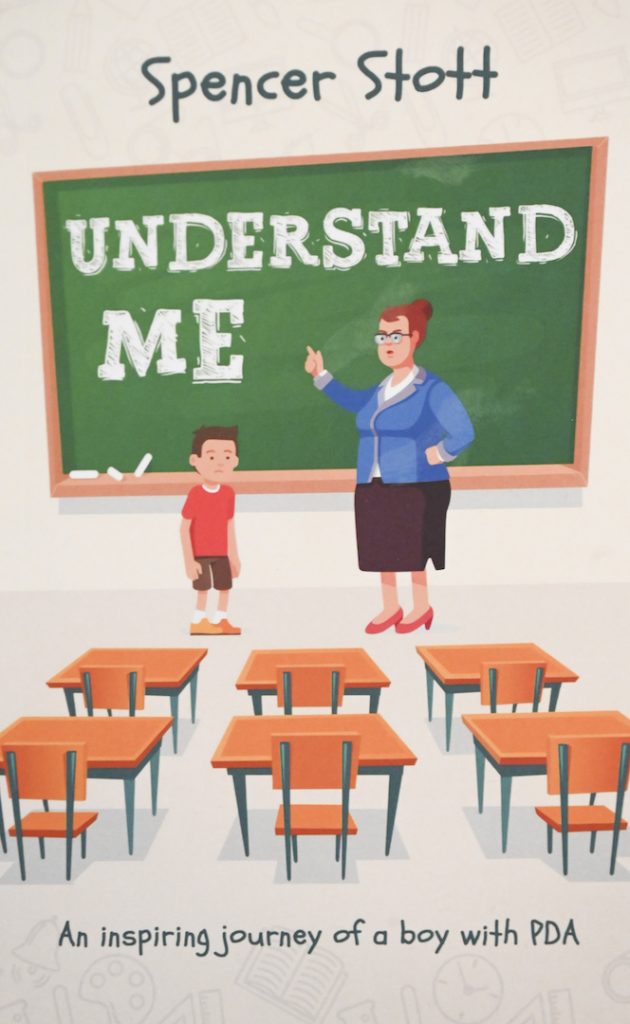
Understand Me: An inspiring journey of a boy with PDA
Spencer Stott
This is a beautifully articulated account of Spencer, a 9yr old boy, and his journey with PDA and Asperger’s. Engaging in literature based on lived experience is essential. He talks of his schooling journey, both mainstream and homeschooling, friends, loneliness, and other people’s perception of his PDA expression. A must read for a PDA child questioning where they fit in, to understand, they are not alone.
Buy here on Amazon.com.au
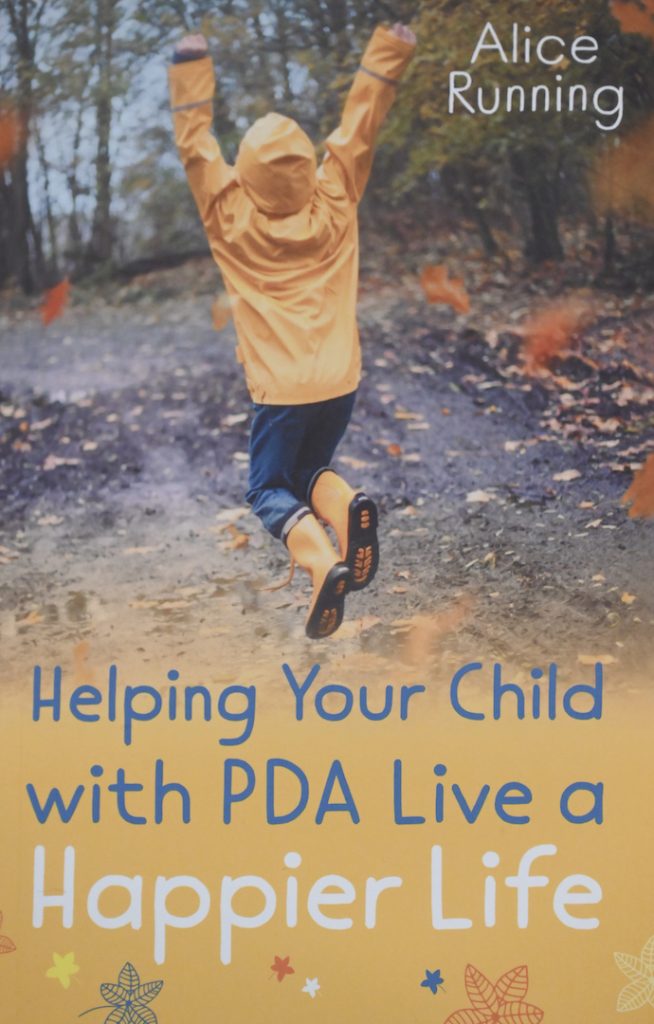
Helping Your Child With PDA Live a Happier Life
Alice Running
This is a very honest look at the experience of parenting a child with PDA, and an excellent starting point on the PDA journey. It is written by Alice Running, who is parenting her son with PDA. The chapters within cover PDA in context, sensory needs, daily life, transitions and change, the art of negotiation and communication, education, crisis and distress, and working with professionals.
Buy here on Amazon.com.au
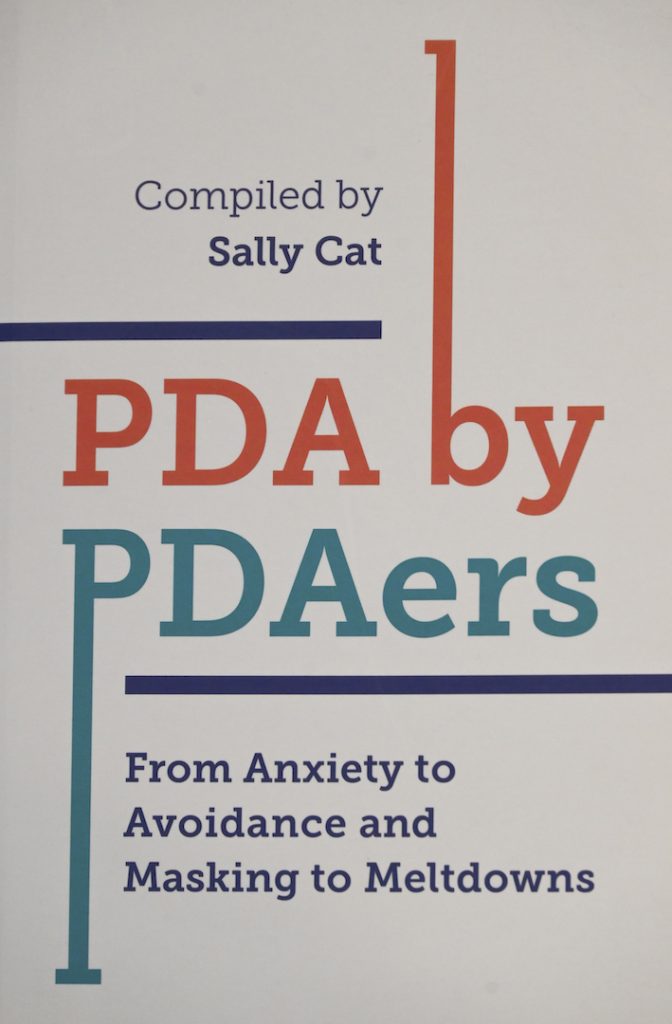
PDA by PDAers: From Anxiety to Avoidance and Masking to Meltdowns
Sally Cat
The book is a favourite among the PDA community. It is a text completely written by people with PDA, hence the title! Sally Cat has done an amazing job in compiling thoughts, discussions and artworks of expression. A must read for any parent on the PDA journey with their child. Chapters include anxiety, masking, intolerance of uncertainty, control, meltdowns, overload, role play, routines, school, work, coping strategies, reasonable accomodations and parenting.
Buy here on Amazon.com.au
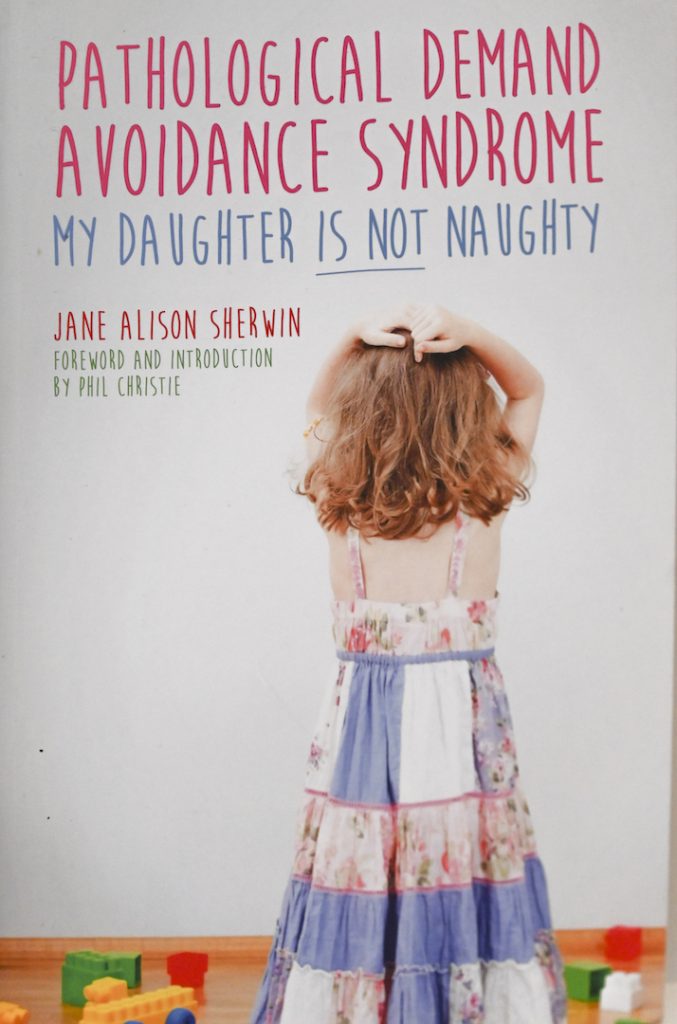
Pathological Demand Avoidance Syndrome: My daughter is not naughty
Jane Alison Sherwin
This book charts the rollercoaster ride for Jane Sherwin, as she supports her daughter, Mollie, through misdiagnosis until they arrive at PDA. If you are a parent with a PDA daughter, you will enjoy this honest and sensitive account. Chapters include school, understanding behaviours, breaking the PDA cycle, interacting in the neurotypical world, adolescence, family, and the importance of diagnosis.
Buy here on Amazon.com.au
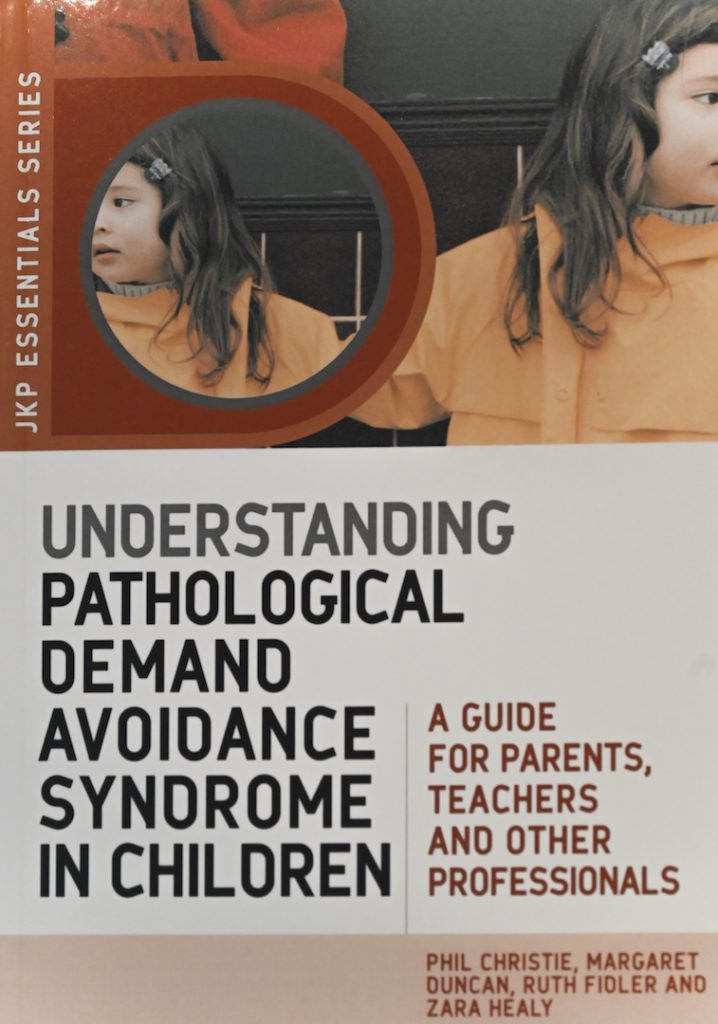
Understanding Pathological Demand Avoidance Syndrome in Children: A guide for parents, teachers and other professionals
Phil Christie, Margaret Duncan, Ruth Fidler and Zara Healy
This is a comprehensive PDA book, covering the topics, what is PDA?, everyday strategies, education, and emotional well-being of the child. It also gives a brief history of PDA, including Dr Newson’s defining criteria for diagnosis (2003). It is a collaborative approach between teachers, parents and professionals, making it an exhaustive account of the PDA journey.
Buy here on Amazon.com.au
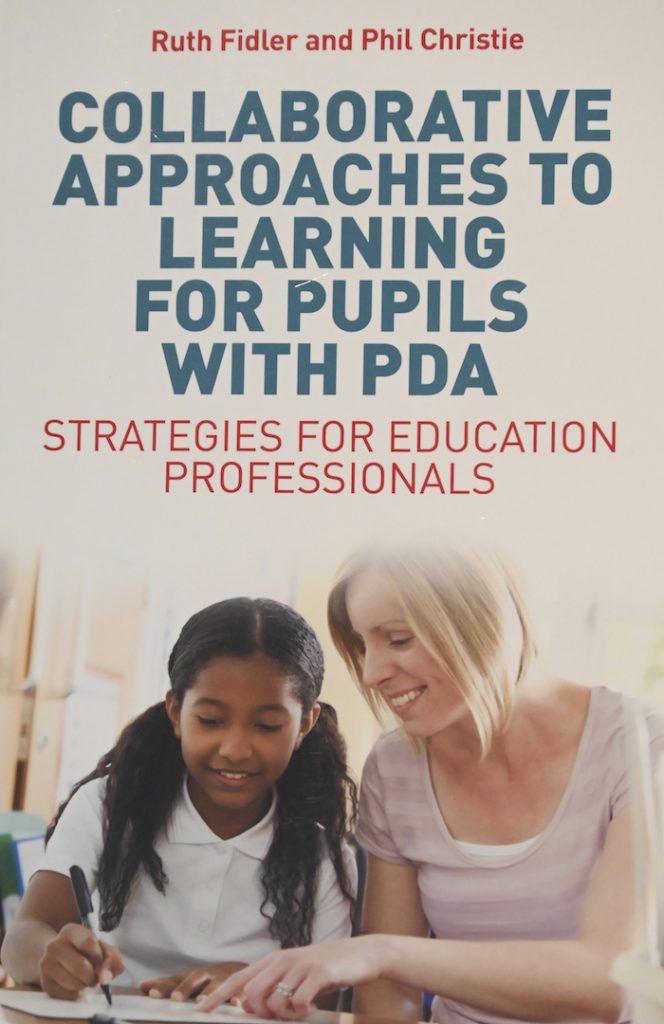
Collaborative Approaches to Learning for Pupils with PDA: Strategies for Education Professionals
Ruth Fidler & Phil Christie
This book written by two highly accomplished PDA researchers, discusses educational approaches to learning for the PDA student. With helpful downloadable resources, it discusses key strategies and how to personalise a curriculum.
Buy here on Amazon.com.au
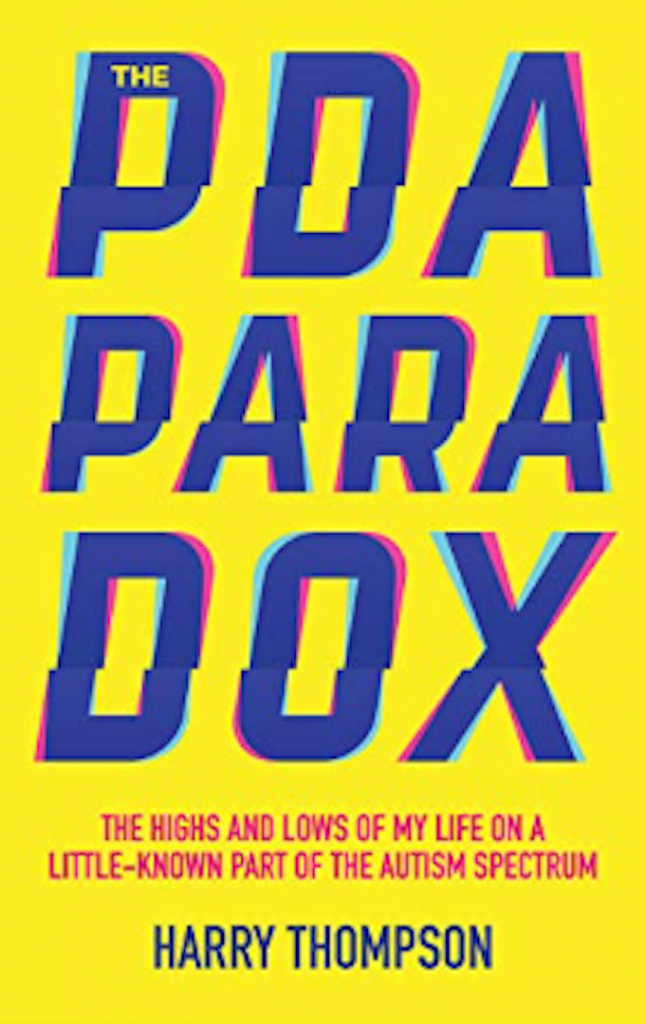
The PDA Paradox: the Highs and Lows of My Life on a Little-Known Part of the Autism Spectrum
Harry Thompson
A highly regarded book on PDA, this book provides a first hand lived-experience account by the author, Harry Thompson, on his birth through to his mid twenties. It covers topics including family, relationships, school, work and his mental health through these stages. It is both witty and honesty, hailing it as a must read.
Buy here on Amazon.com.au
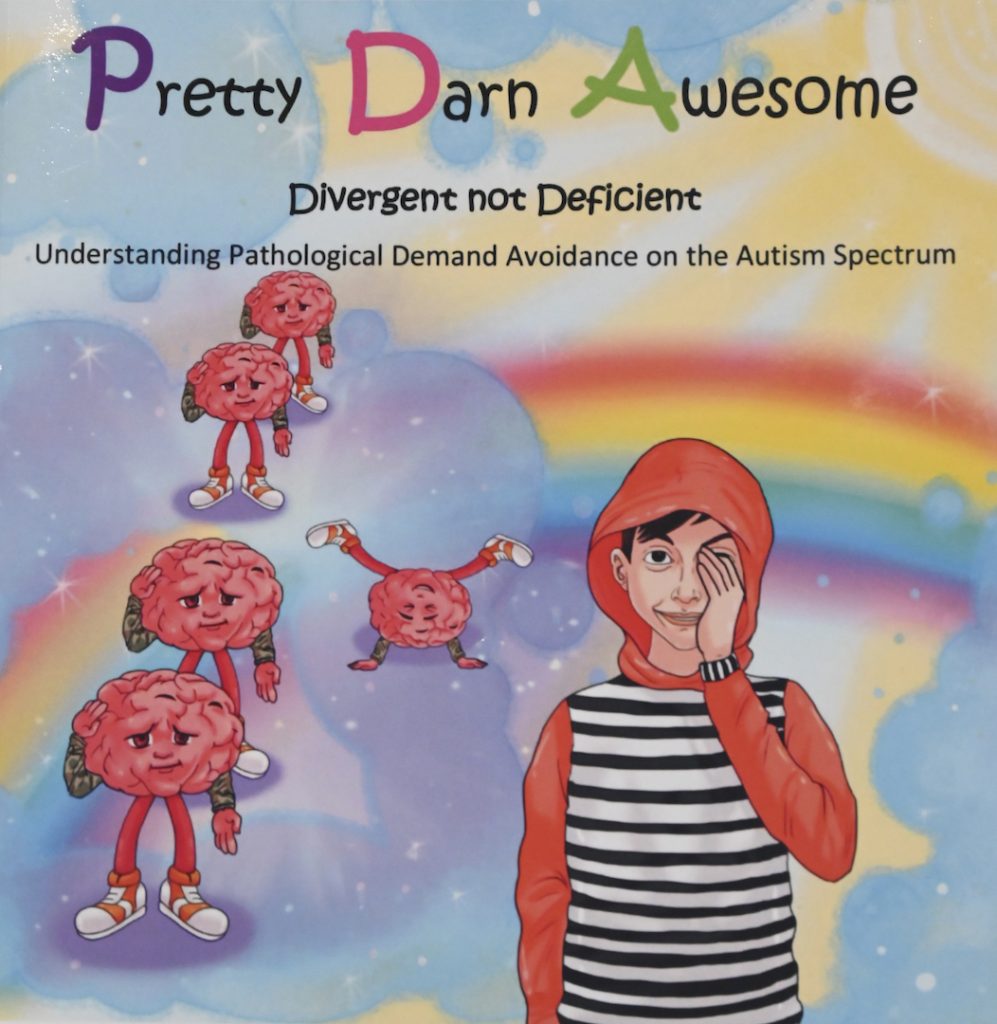
Pretty Darn Awesome: Divergent not Deficient. Understanding Pathological Demand Avoidance on the Autism Spectrum
Lauren O’Grady
This is a child-friendly short book, aimed at children from four years old, written through the eyes of the child on how they see the world from a PDA perspective. It acknowledges the authentic PDA representation, and is a must for any parent aiming to talk to their child about their neurodiversity.
Buy here on Amazon.com.au
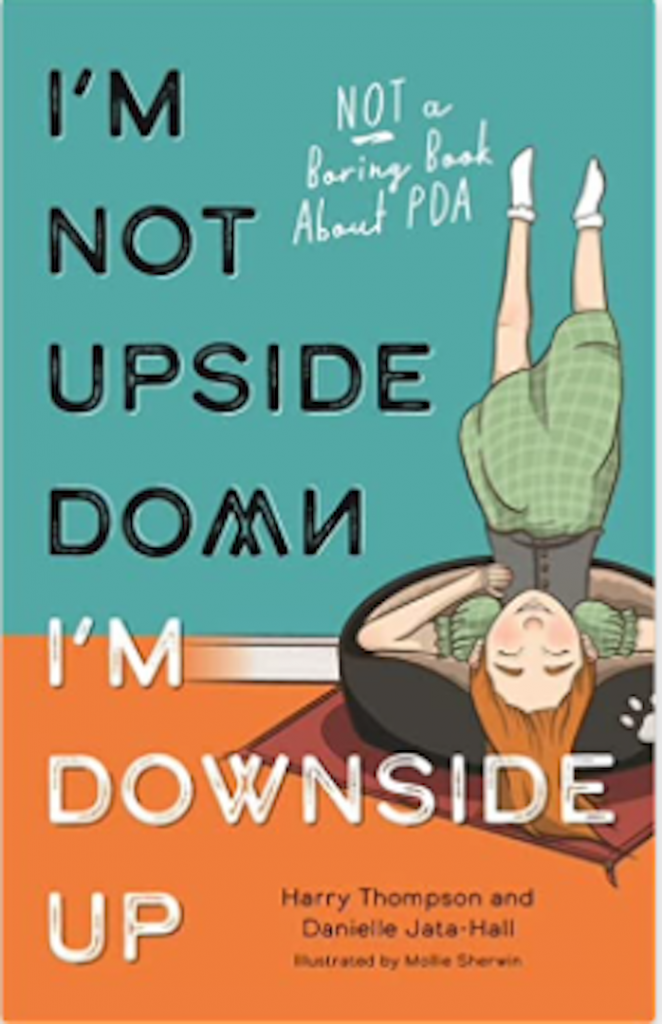
I’m Not Upside Down, I’m Downside Up: Not a Boring Book About PDA
Danielle Jata-Hall & Harry Thompson
Drawing from their joint lived and professional experience working with PDAers, comes this quirky and honest book on the mind of a child with PDA. Delve deeper into this world to increase your understanding and become truly moved by the story.
Buy here on Amazon.com.au
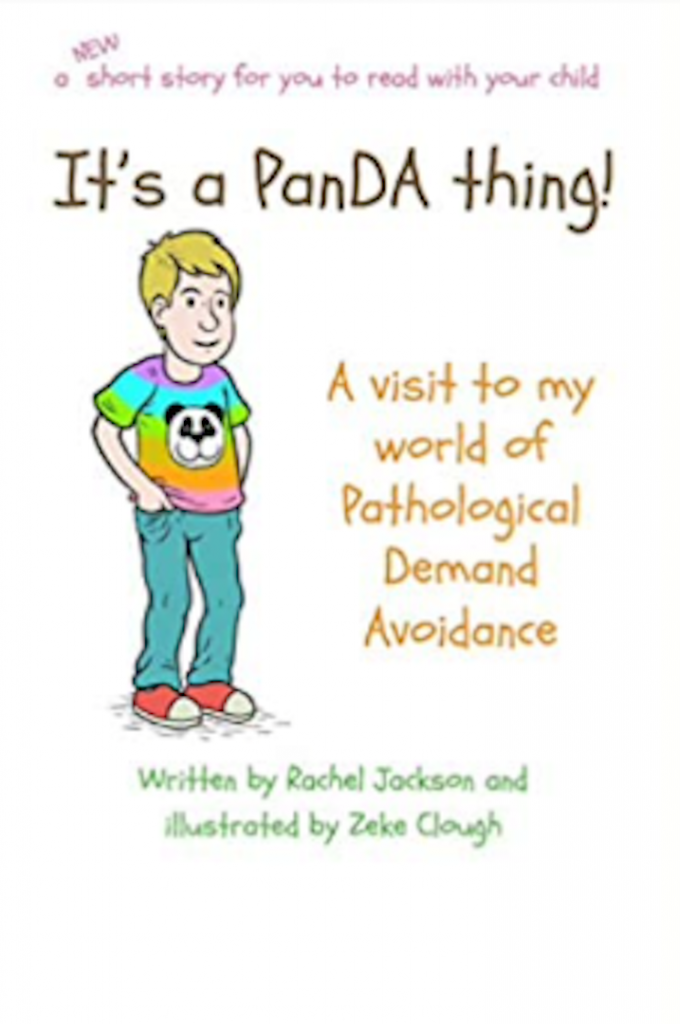
It’s a PanDA thing! A visit to the World of Pathological Demand Avoidance
Rachel Jackson
The third book in the author’s series (following on from Autism and Aspergers), comes a book aimed at starting conversations about PDA between parent/carer and child. Written for children, and supported by the PDA Society UK, featuring the PANDA ambassador, the writing offers a deeper understanding of the PDA experience with fun use of language and effective illustrations.
Buy here on Amazon.com.au
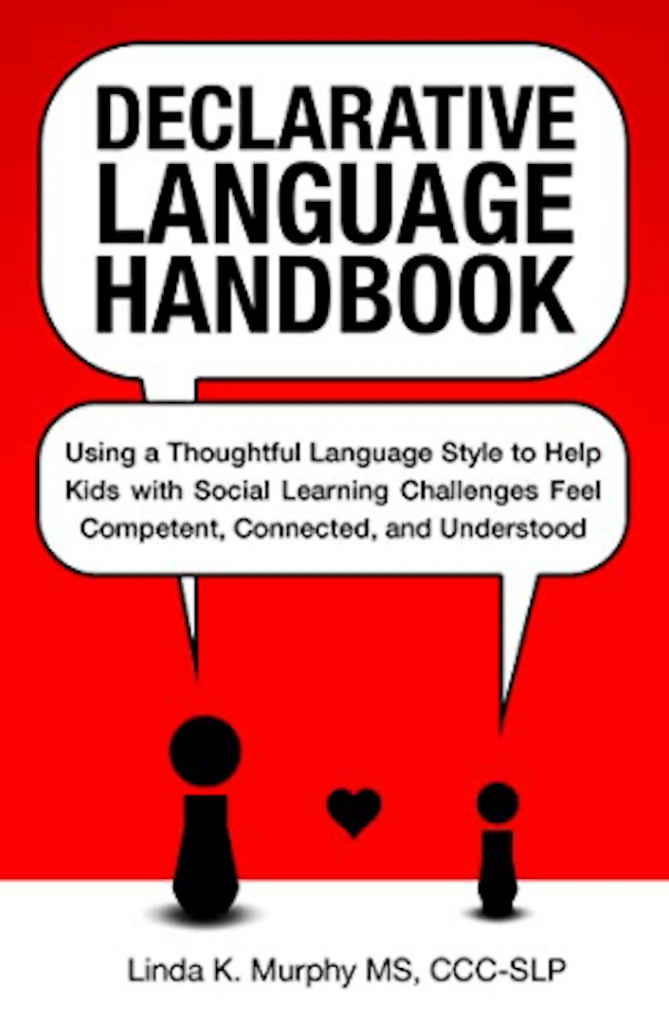
Declarative Language Handbook: Using a Thoughtful Language Style to Help Kids with Social Learning Challenges Feel Competent, Connected and Understood
Linda K Murphy
A very helpful book for parents and professional alike, to make small shifts in language and speaking style. It is practical, and should be read by ALL parents and professionals engaged in the PDA space.
Buy here on Amazon.com.au

The Educator’s Experience of Pathological Demand Avoidance: An Illustrated Guide to Pathological Demand Avoidance and Learning
Laura Kerbey
During Laura Kerbey’s time teaching autistic children, she had a sudden realisation that those with Pathological Demand Avoidance (PDA) are children like no other! None of her tried and tested autism strategies would work to help them focus or learn and most of her time was spent wondering, what am I doing wrong? If you feel the same, this short, easy-to-read guide is here to teach you everything you need to know from one educator to another. With an introduction to what PDA is followed by PDA tailored advice on how to connect with your student and create an autonomous, spontaneous environment that is personalised for you both, this guide is here to ensure that you and your PDA student thrive!
Buy here on Amazon.com.au

The Teacher’s Introduction to Pathological Demand Avoidance: Essential Strategies for the Classroom
Clare Truman
This essential guide for working with PDA pupils outlines effective and practical ways that teachers and school staff can support these pupils, by endorsing a child-led approach to learning and assessment.
Beginning with an introduction to PDA and how it can affect the education experience, it is then followed by thoughtful, useful strategies school staff can implement to build a collaborative relationship with pupils and help them to thrive in the school environment. The activities presented aim to make children more comfortable and at ease, and therefore better able to learn. It covers key issues for children with PDA, such as sensory issues, preferred language and phrasing of demands, social skills, and recognising distressed behaviour. The chapter summaries and simple activities listed throughout make this a useful tool for busy teaching staff working with PDA pupils.
Buy here on Amazon.com.au

The Panda on PDA
Gloria Dura-Vila
In this positive, gentle and PDA-friendly guide for young children, PDA is explained by a playful Panda who has PDA and is very proud of it. The Panda is full of talents and strengths, but finds it very hard to do what others want. In fact, the Panda has become great at climbing trees and bamboo, and hiding in caves to escape demands! The Panda addresses the challenges and struggles of PDA honestly, but can also thrive and live a happy life in the right environment, when supported by others.
Buy here on Amazon.com.au

My Brain is a Racecar
Nell Harris
A story to help understanding a neurodivergent brain.
Created and inspired by my daughters ADHD diagnosis, I wanted to gift her a book that help explained her brain’s processes and needs. No big words or acronyms that result in ‘what does that mean’ and bring the child out of the story.
“Brains are just like cars, they all drive round and round a track, picking up information and then bringing it back. Some brains are Race Cars that like to drive extra fast. Sometimes though, they forget to sop and fully complete a task.’
But driving cars fast all the time and not servicing or maintaining them leads to overheating and burnout.
We can apply that same logic to our brains.
I am so proud of this book, and sharing with friends I have been told the same principles talked about in this book apply to their children who are on the spectrum.
Buy here on Amazon.com.au

Some Brains: a book celebrating neurodiversity
Nelly Thomas
Some Brains is the latest heartwarming and funny picture book by Melbourne comedian and author, Nelly Thomas.
It starts from the premise that neurodiversity (conditions like Autism, ADHD, Dyslexia and the like) is a normal, essential part of human biodiversity – without it we don’t get Picasso, Einstein or Greta Thunberg! Yes, neurodiverse kids sometimes require a bit of extra help and patience, but they should never be viewed as disordered. Some Brains encourages us all look for our strengths and to understand that brains are like fingerprints – uniquely, wonderfully ours.
All brains are special,
All brains are smart,
All kids have big thoughts,
And all kids have big hearts.
ALL KIDS ARE SPECIAL – JUST FOLLOW THEIR HEARTS
Buy here on Amazon.com.au

PDA in the Therapy Room: A Clinician’s Guide to Working with Children with Pathological Demand Avoidance
Raelene Dundon
Pathological Demand Avoidance (PDA) presents a unique challenge for professionals, whereby conventional therapy methods are often perceived as demands and met with opposition where they normally would have proven effective. This guide sets out the most effective strategies for clinicians to provide the best care for children with PDA, adapting conventional modes of therapy to suit their needs. Methods include indirect techniques such as play-based therapy or trauma-informed approaches enabling the child to process their experiences on their own terms.
With additional guidance for supporting the families of patients and addressing common obstacles, this book provides understanding and guidance for professionals making a difference to the lives of children with PDA.
Buy here on Amazon.com.au

Can I tell you about Pathological Demand Avoidance syndrome? A guide for friends, family and professionals
Ruth Fidler & Phil Christie
Meet Issy – an 11-year-old girl with pathological demand avoidance syndrome (PDA), a condition on the autism spectrum. Issy invites readers to learn about PDA from her perspective, helping them to understand how simple, everyday demands can cause her great anxiety and stress. Issy tells readers about all the ways she can be helped and supported by those around her.
This illustrated book is for readers aged 7 and upwards, and will be an excellent way to increase understanding about PDA in the classroom or at home. It also includes practical tips and recommended resources for parents and professionals
Buy here on Amazon.com.au

Me and My PDA: A guide to Pathological Demand Avoidance for Young People
Gloria Dura-Vila & Tamar Levi
This beautifully illustrated guide helps young people with Pathological Demand Avoidance (PDA) to understand their diagnosis, develop self-awareness and implement their own personalised problem-solving strategies. Written in consultation with young people with PDA and their families, this book recognises the importance of handing control back to the young person, and that there is no one-size-fits-all PDA profile. Readers are encouraged to engage throughout with interactive writing, doodling and checklist exercises to explore their own particular characteristics, strengths and challenges.
Me and My PDA is sensitively tailored to the needs and experiences of young people (aged 10+) with PDA. The guide is designed to grow with the reader, and can be used for many years as the young person develops and changes – making it invaluable to PDA-diagnosed individuals and their families.
Buy here on Amazon.com.au

Super Shamlal: Living and Learning with Pathological Demand Avoidance
K.I. Al-Ghani
Shamlal the Camel finds it almost impossible to do all the normal, everyday things that the other camels do. Her first word was NO! and this is still the word she repeats the most through every day. Luckily, Shamlals parents take her to a psychologist who explains that she has PDA, and gives her tips for how to live and learn with the syndrome. This simple, illustrated storybook will help children aged 7-11 with PDA to recognise its features, and develop tools to support them. A helpful introduction for parents and carers explains how it feels to live with the panic attacks and general anxiety that are caused by living with PDA, and the appendices at the back provide useful strategies to be adopted at school and at home.
Buy here on Amazon.com.au

The Brain Forest
Sandhya Menon
Come explore The Brain Forest, which follows a mother and her son down the path of understanding the different ways brains can be. Brains that go fast, brains that go slow, brains that do what they’re told, brains that say NO! A heart-warming read that helps celebrate neurodiversity without dismissing its challenges, and centers around building a strengths-based society where everyone is valued for what they have to offer. This book helps start conversations and offers ideas to the reader about what they can do to create more inclusive environments.
Buy here on Amazon.com.au

Low Demand Parenting: Dropping Demands, Restoring Calm, and Finding Connection with your Uniquely Wired Child
Amanda Diekman
“Low-demand parenting requires radical acceptance. It says to the kid right in front of you, I see you, just as you are. – You are ok here. I love you right here.” Parent to neurodivergent children and autistic adult, Amanda Diekman, outlines a parenting approach that finally lowers the bar for the whole family, enabling the equilibrium of the home to be restored. Low-demand parenting allows you to drop the demands and expectations that are making family life impossible and embrace the joyful freedom of living life with low demands. It can be a particularly effective approach for children with high anxiety levels including neurodivergent children. Amanda talks from experience and teaches you how to identify what the big, tiny and invisible demands are for your own child and gives you the step-by-step instructions on how to drop them. Full of practical resources and scripts that are easy to implement in busy everyday life, this book is your flashlight and your map to parenting your uniquely wired child. It will not tell you where to go, but it will help you find your way so you and your family thrive.
Buy here on Amazon.com.au
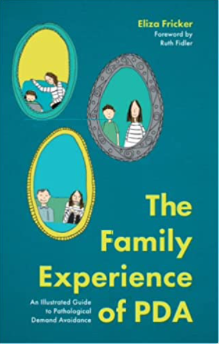
The Family Experience of PDA: An Illustrated Guide to Pathological Demand Avoidance
Eliza Fricker
A very helpful book for families to learn the skills of “softening the edges of parenting” with a heartfelt view of the authors perfectly imperfect experience of raising a PDA child. This book reminds parents that they are not alone in the PDA journey.
Buy here on Amazon.com.au

Understanding PDA: For Kids & Grown Ups
Stacey Freeman
‘Understanding PDA: For Kids & Grown Ups’ is a book about Pathological Demand Avoidance (PDA), from the perspective of a little boy called Ethan. Ethan shares his personal experiences with PDA, and how it affects his ability to handle certain demands and expectations. The book offers valuable insight and helpful tips for those who want to support individuals with PDA. It is hoped that readers will gain a deeper understanding of PDA, and encourage the world around these individuals to better support them.
Buy here on Amazon.com.au

The PDA-Saurus
Sophie Cook
The PDA-Saurus comes to life with the help of Canva, where its illustrations have been meticulously crafted with heartfelt passion. This book invites PDA children into a world where they can see themselves validated and understood.
This book can help children understand their PDA but also gives parents, caregivers, and teachers tips on supporting PDA children.
My favourite thing about this book is that it can be purchased in multiple pronouns – he/him, she/her or they/them.
Buy here on Amazon.com.au
Podcasts

The Empowered Parent
Dana Baltutis
Embracing neurodiversity and PDA – I sat down with Dana (speech pathologist and business owner of My Therapy House) and had a great conversation about my journey and all things PDA! Have a listen here…
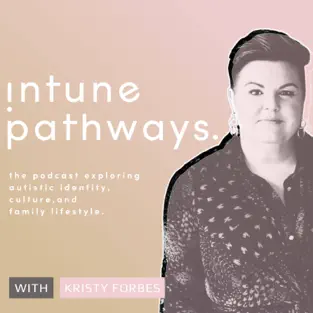
inTune Pathways
Kristy Forbes
Kristy Forbes is an Australian leader in the world of PDA, known for her work in the local, national and international space. Identifying with PDA herself, and raising neurodiverse children, she speaks of her long personal experience with Autism and PDA through a lens that is relatable, honest and thought-provoking.
An exploration of autistic identity, culture, and family lifestyle.
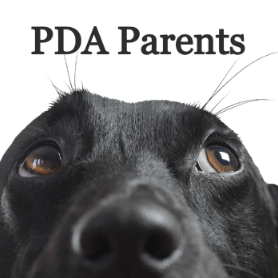
PDA Parents
Caitie & Casey
Based in the USA, these two mums of both children with PDA and neurotypical children, speak of their experiences raising children with PDA. They discuss lowering demands, creativity, the schooling system, discussing PDA with friends, family and siblings, and communication.
Whilst some topics are from the American perspective, it is a helpful starting point for new parents in this space to immerse themselves in other parent journeys.
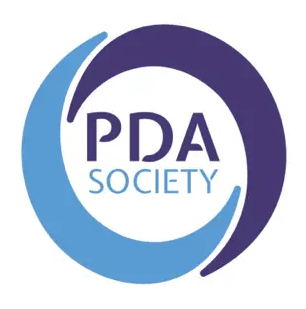
PDA Society
PDA Society
As the international leader in PDA, the PDA Society (UK) share helpful, informative insights about PDA. They are short 25min episodes, that will assist both parents and professionals.
Other
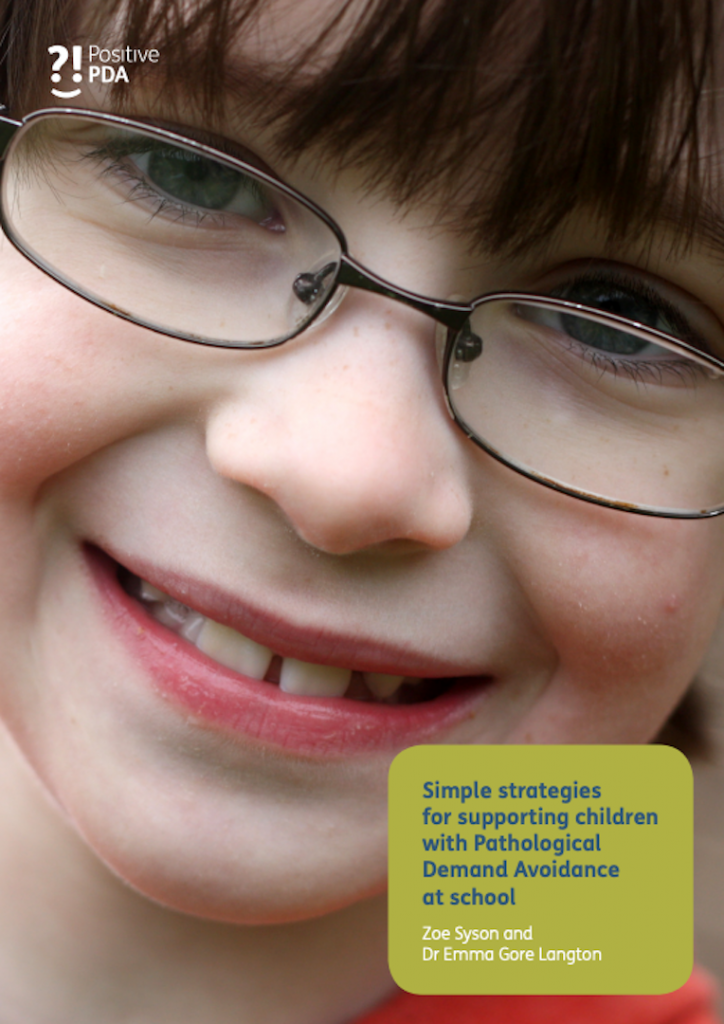
Simple Strategies for Supporting Children with Pathological Demand Avoidance at School
Zoe Syson & Dr Emma Gore Langton
This short guide gives accounts of parents and educators in a primary school setting. It discusses supporting social needs, as well as school specific examples and accommodations for your child. Whilst the strategies are straight forward, it serves as a reminder to think carefully about language used, and about the demands an education setting creates through daily routine and learning.
Read the full booklet here
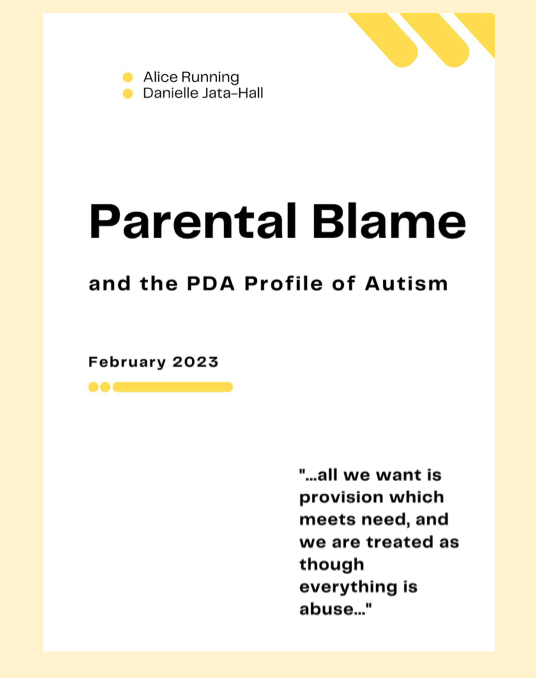
Parental Blame and the PDA Profile of Autism
Alice Running & Danielle Jata-Hall
An overdue piece of work, all parents should read this. It promotes parent/carer voices and experiences in the PDA journey. The results of a survey into parental blame, brings to light the understanding scope of fear among parent/caregivers, and how prevalent the issue of blame is within the systems of support for PDA children. The report shows that when parents are blames for their child’s PDA, both the parents and child suffer.
Read the full booklet here

